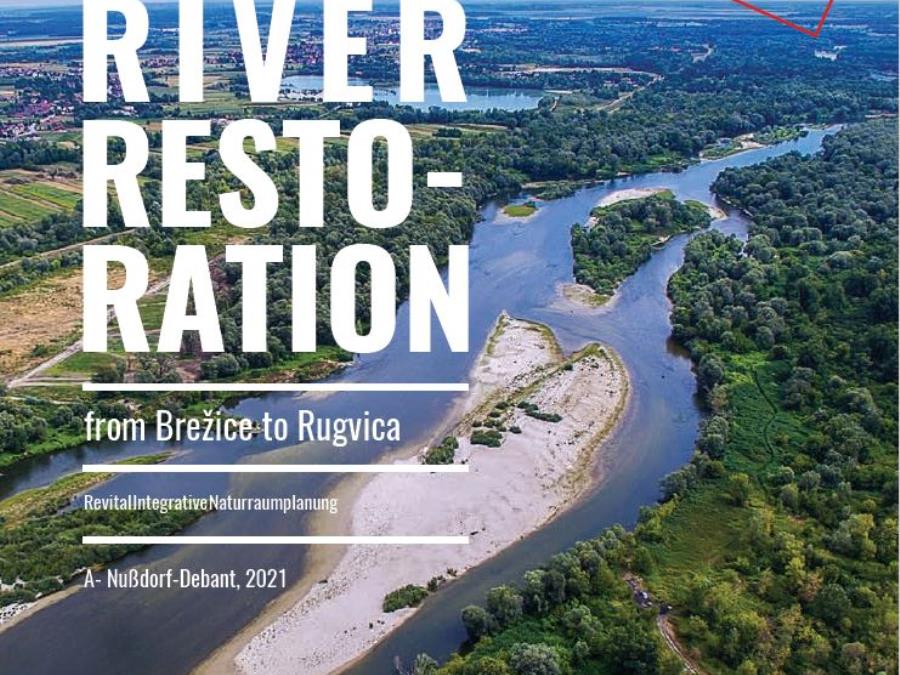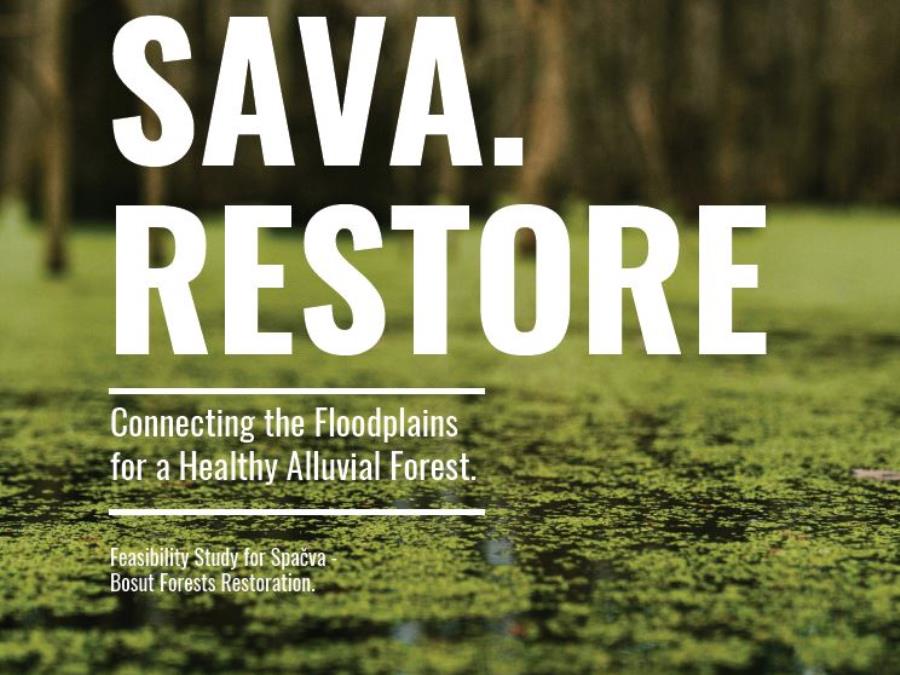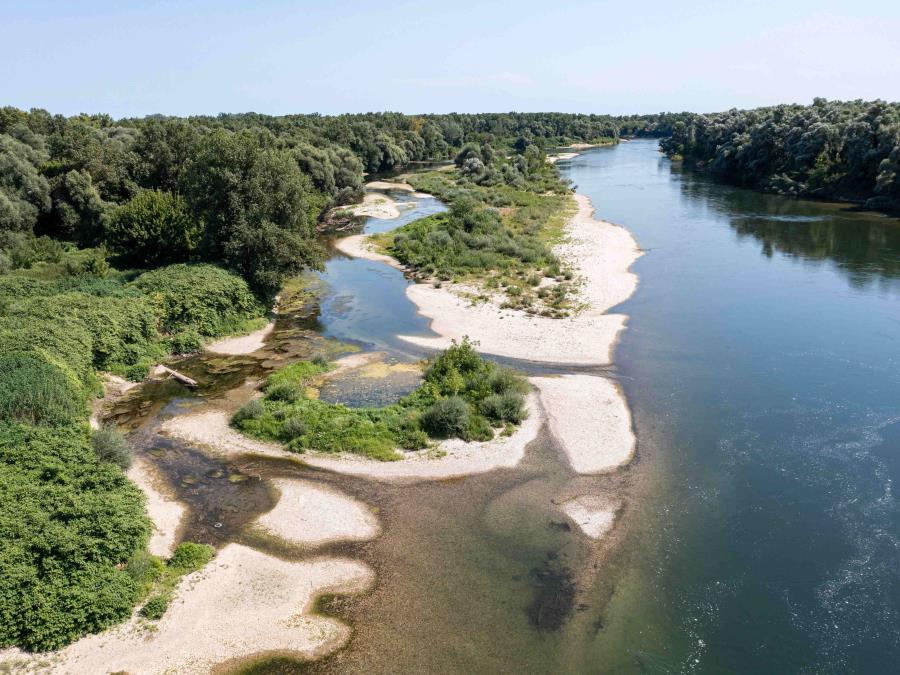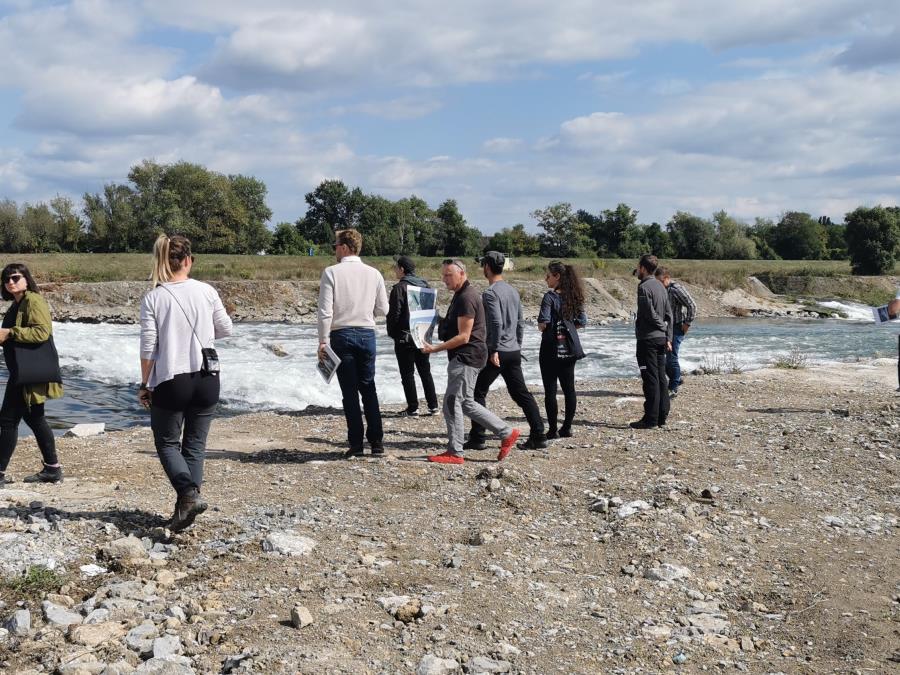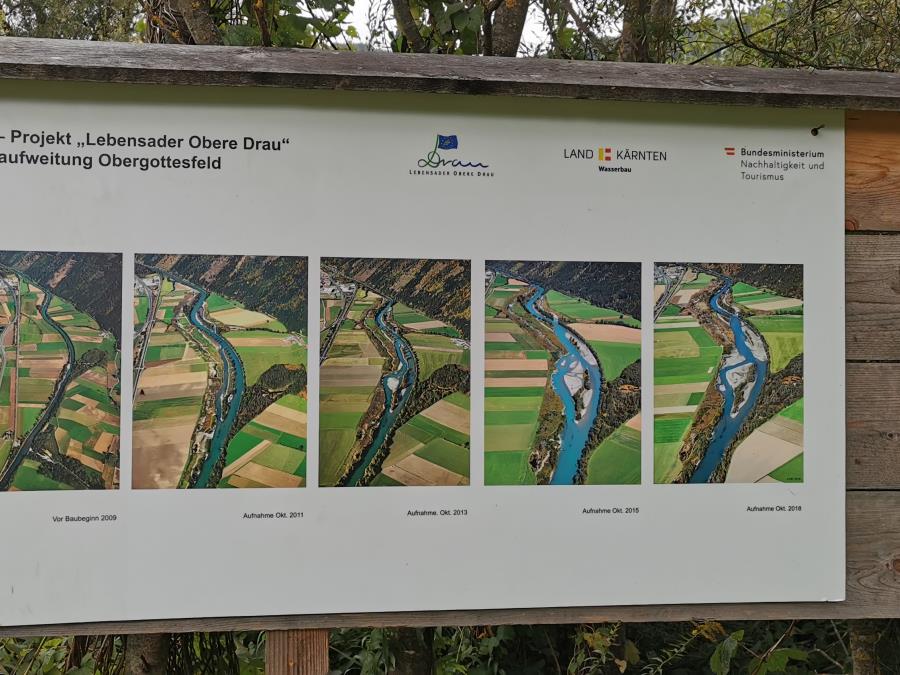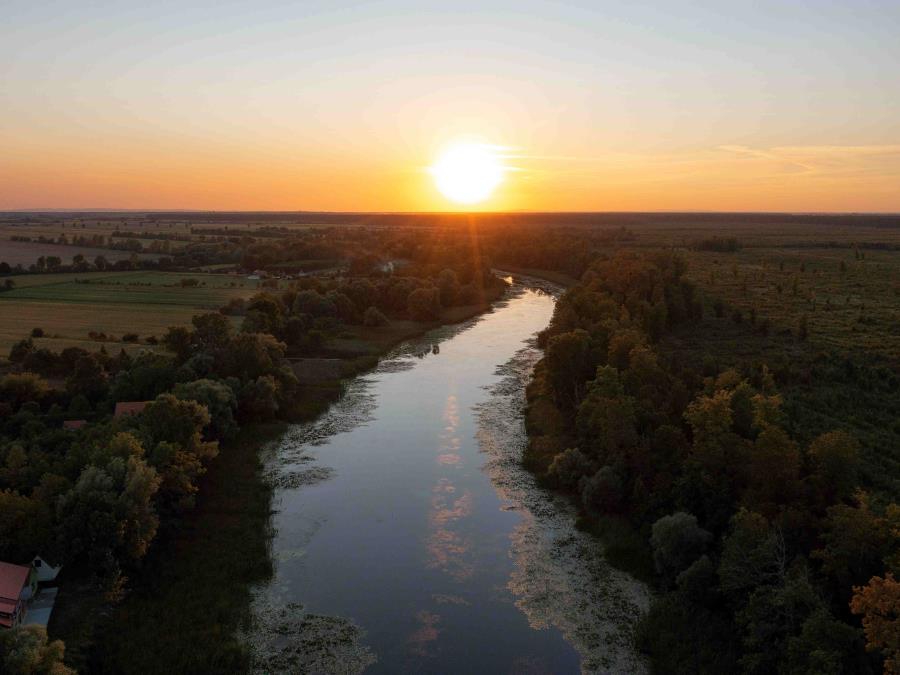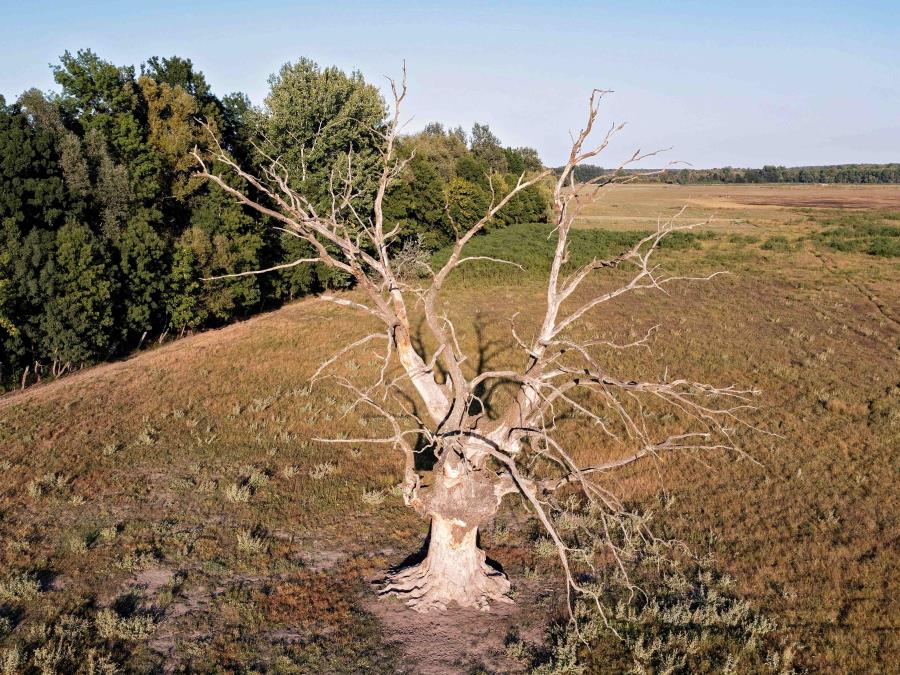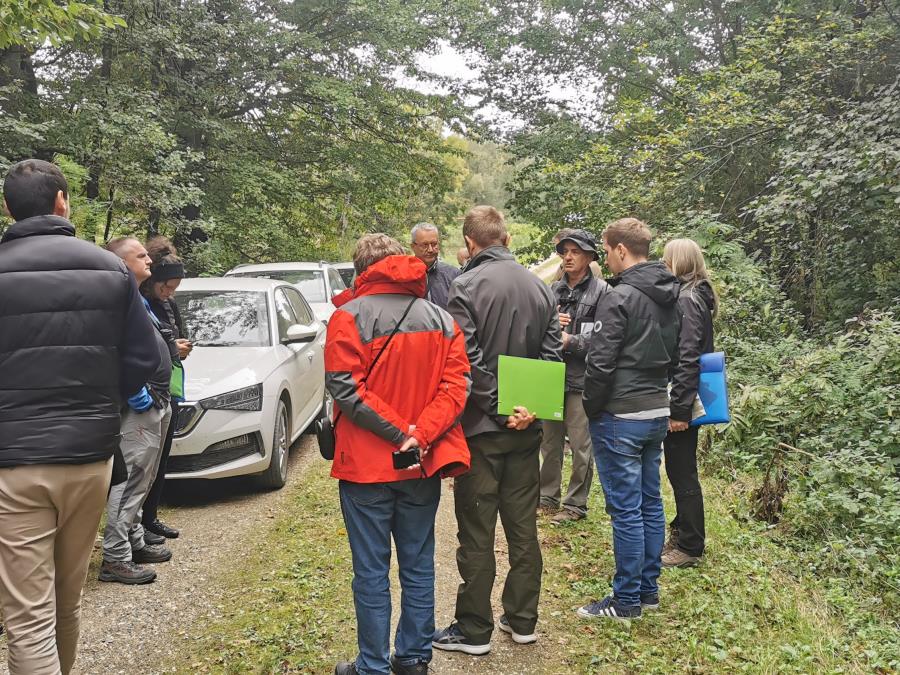Fundamental studies for the restoration of the Sava River and its floodplain presented to stakeholders
Key findings and summaries of two studies for the revitalization of the Sava River and its floodplain have been presented to important stakeholders from 19 to 22 September. As a part of the Sava Parks II - Freedom for Sava project, together with important stakeholders, the project team visited representative project areas and discussed the proposed solutions for revitalization. The journey started in Austria with a visit to already restored parts of the Drava river. The experiences gathered helped to better understand the challenges and opportunities ahead of us.
Focus of the „Sava river restoration from Brežice to Rugvica“ study was a 53 km long river stretch where many problems for local society and biodiversity have been identified. Some of them are dropping groundwater levels, water sources at risk, unstable foundations of bridges and buildings, loss of natural riverine habitats. The solution is based on widening the river within existing embankments with activating bank erosion which would compensate the lack of sediment and regenerate groundwater levels and natural habitats. This procedure would create an attractive landscape which would significantly increase the touristic potential of this area. The study was developed by REVITAL Integrative Naturraumplanung GmbH (Austria). „The inital study for the Sava river restauration is opening a new perspective for improving the status of the river, connected groundwater levels as well as ensuring drinking water for the wider Zagreb area, all in line with nature.“ – said Mr. Aljosa Duplic, the director of the Croatian Institute for Environment and Nature.
In the „Sava.Restore – Connecting the Floodplains for a Healthy Alluvial Forest“, experts analyzed the Bosut (Serbia) and Spačva forests (Croatia) – in total more than 70.000 ha of alluvial forest. The area suffers from decreasing groundwater, which results in forest diebacks. At the same time, it is an area with a very low altitude that could provide a wide retention area for flood waters . Bringing excess water from Sava to the forest would have a positive impact on the economy, biodiversity, flood prevention and climate resilience. This study was developed by E.C.O. (Austria). „The concept for the Spacva-Bosut forest is a interesting baseline study. It is known for some time that problems in the forest need to be addressed. Now it will be important for all stakeholders to exchange further to find the best option for restoring the area. “ – said Bojan Tubic from the Public Enterprise Vojvodina Sume.
Summaries of both studies are already publicly available through the SavaParks Network webpage while full studies will be available within the next few weeks.
The project is financed by Aage V. Jensen Foundation.
